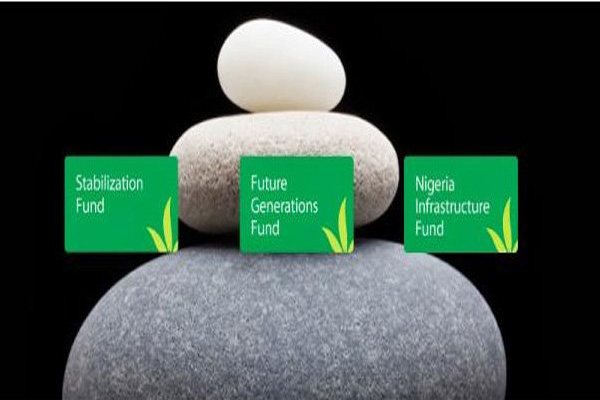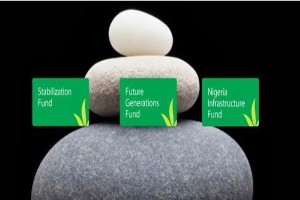The Nigerian Sovereign Investment Authority (NSIA), managers of our country’s Sovereign Wealth Fund released their pioneer annual report last week. Whilst Uche Orji (MD/CEO) was quick to point out that they had experienced a drag in performance due to significant un-invested cash, it’s interesting to see that the NSIA is keen on a larger scale of real estate investment moving forward. This is a good strategy, considering that real estate is known to offer impressive risk-adjusted returns in comparison to other asset classes.
Performance
- First Year Accounts (2013) – Income of N1.46b ($8.97m) & Profit of N525.2m ($3.22m)
- First Quarter (Q1) of 2014 – Profit of N1.2b ($7.37m) [New Information – Not shown in Annual Report].
Orji said, “We are encouraged that the financial performance as of Q1 2014 improved within the bounds of our expectations…”
Real Estate & the Nigerian Infrastructure Fund
To achieve the shared goal of building a savings base, enhancing development and providing stabilization, the Future Generations Fund, Nigerian Infrastructure Fund and the Stabilization Fund were created. The Nigerian Infrastructure Fund is geared towards investing in infrastructure projects in Nigeria that meet targeted financial returns and contribute to the development of essential infrastructure in Nigeria. It has the most exposure to real estate.
The 2013 Annual Report demonstrates the authority’s keen interest in a host of real estate investments opportunities including:
- Office buildings
- Malls
- Industrial real estate
- Residential real estate
- Hospitality – 5-Star hotels
The NSIA explained that the fund would only invest in infrastructure projects in sectors that have the potential to contribute to the growth and diversification of the Nigerian economy, create jobs within Nigeria and where possible attract foreign investment. Refreshingly the NSIA is keen on investing in projects with attractive commercial AND social returns.
Initial Real Estate Investments
Earlier this year, it was revealed that this fund would be investing in property through their (maximum) 20% equity position in the Nigerian Mortgage Refinance Company (NMRC) and Affordable Housing. The NMRC investment was done in a bid to increase liquidity within the mortgage market, increase mortgage tenors, lower the cost of mortgages, and improve access to mortgage credit for the Nigerian population. This is pursuant to the NSIA’s real estate strategy of unlocking demand in the real estate sector.
The affordable and mass housing real estate segment is another critical target segment for the NSIA. It is predicated upon Nigeria’s large housing deficit and the growing middle class demography in the country. With a population of over 160 million people, rapid urbanisation and inadequate housing stock, the NSIA is right to conclude that there is a need to provide housing at all levels, particularly in the low and middle income segments.
Real Estate & the Future Generations Fund
While the Nigerian Infrastructure Fund carries the lion-share of the real estate exposure, the longer investment horizon Future Generations Fund also has some allocation for real estate. This fund is geared towards investing in a diversified portfolio of appropriate growth investments to provide the future generation of Nigerians a solid savings base.
25% of this fund has been allocated to investing in Private Equity, Venture Capital and Valued-Added real estate. Value-Added real estate typically involves increasing the value of commercial real estate investments by acquiring properties with inherent potential at a discount, and working to increase their occupancy or fix the physical deficiencies. Though this form of property investment typically comes with more risk, opportunistic real estate remains at the top end of the risk spectrum.

Inflation Hedges
To hedge against inflation in the long term, this fund is investing in hard assets (10%) and they will be using the FTSE EPRA/NAREIT Developed Index as their benchmark for half of that 10% hard asset allocation. This index was designed to measure the stock performance of companies engaged in specific real estate activities in mature investment markets, where relevant real estate activities include the ownership, trading and development of income-producing real estate. An indication that this allocation will be for real estate as well, most likely in (Non-Nigerian)* REITs. They have said their inflation hedging component has been underweighted because they have a natural inflation hedge built in from oil exports.
Real Estate for the Win
The work from the NSIA is impressive and their interest in real estate reflects the inherent potential in this sector, especially within the Nigerian economy. Other sovereign wealth funds in Saudi Arabia and Norway (the world’s largest) have also expressed interest and have started investing in property.
The Nigerian Sovereign Investment Authority is expecting to outperform next year as there will be many more investments made, and much less cash lying around. The Nigerian public awaits and observes as this new entity works hard to fulfil its mandate.
 About the Author: Dolapo Omidire is a recent graduate and a Real Estate Research Analyst living and working in Nigeria. He has a strong interest in his built environment, property and writing/blogging. For more information and posts, follow him on Twitter – @DolapoOmidire and visit. http://estateintel.com
About the Author: Dolapo Omidire is a recent graduate and a Real Estate Research Analyst living and working in Nigeria. He has a strong interest in his built environment, property and writing/blogging. For more information and posts, follow him on Twitter – @DolapoOmidire and visit. http://estateintel.com



